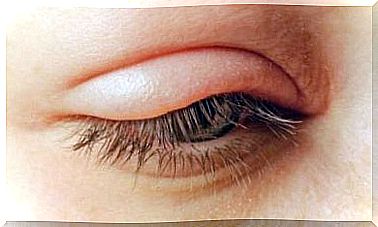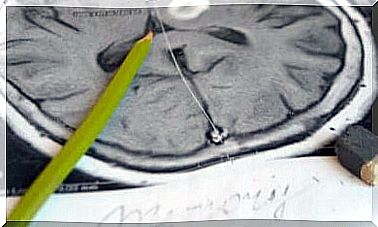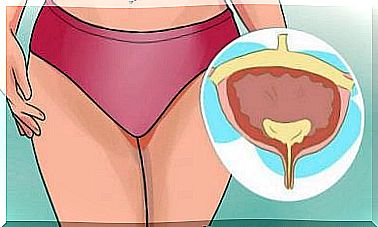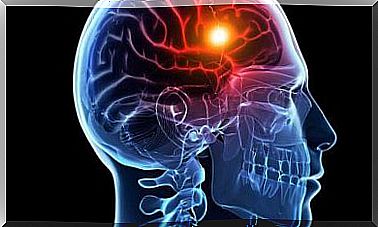Constant Guilt And Bad Mood

A constant feeling of guilt for things that you are not really responsible for should be an indication that something is not right. It is important to treat this feeling as soon as possible so that it does not get worse.
Sometimes a small voice suddenly arises inside that fills us with guilt. A little voice that tells us that we are doing everything wrong, that nothing is worth it and that no matter how hard we try, everything will eventually fail.
This is a situation where patients who suffer from a condition called dysthymia can suffer from chronic depression and lose interest in almost everything.
These are all symptoms of a type of depression that can be very mild or moderate at first. However, if left untreated and not confronted, this condition can easily become a much bigger problem.
Let’s get more familiar with these two common symptoms.
Depending on the influence that these feelings of guilt and bad mood have and the extent to which they control our lives, they can also simply indicate depression or simply a bad period in your life.
When you are taken over by a constant feeling of guilt and bad mood
When something in your house gets dirty and you don’t immediately clean or tidy it up, you immediately feel guilty. Or if you eat a little more than you should or if you have a conversation with someone you later regret, you feel bad and you get that all-too-familiar feeling again: guilt.
When you look at yourself in the mirror and sometimes see only failure…
All these feelings together or experiencing these negative emotions every day for months at a time are clear signs that something is wrong inside.
No one can live with the shadow of guilt that constantly threatens him.
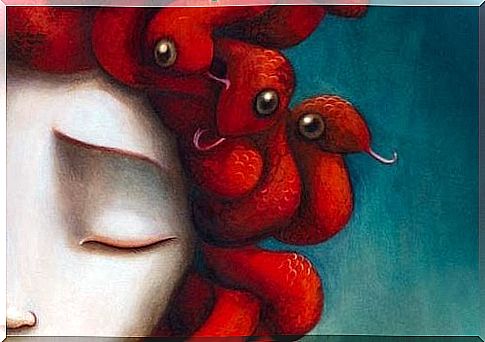
In his day, Freud once said that “excessive guilt or self-blame is the key to understanding depression.” By means of magnetic resonance we have been able to find out what effect this emotion has in the brain.
Guilt and self-blame are a real blow to the brain
The study on how guilt affects the brain was published in the journal General Psychiatry and revealed the following:
- The most anterior portion of the temporal lobe is the part of the brain responsible for processing behavior that is able to rationalize and resolve guilt. This part is related to social behavior and allows one to look at things from an objective point of view.
- People who suffer from depressive disorders have disconnected themselves from this part to activate only the subgenual area.
- This can prevent you from holding other people accountable for the things they do themselves (if someone hurts you, angers you, or cheats on you). You make everything personal and relate everything to yourself.
We come face to face with a reality that is clearly reflected in the brain.
According to experts, if left untreated, this problem can even cause certain forms of aggressiveness, markedly reduced self-confidence and, in the worst cases, a feeling that everything is out of control and that life is not worth it. This is a very serious consequence.
Bad mood as a daily companion
A bad mood and feeling as if reality has lost its natural luster are hallmark symptoms of dysthymia.
Apathy, decreased energy, difficulty sleeping, appetite ups and downs, periods when you feel the need to escape from certain people and then suddenly feel the need to be understood and cared for are all signs of this form of depression. Often there is also a genetic factor involved.
The most complex aspect of this form of depression is that you can feel yourself quite functional for the first few years. You go to work, keep the house in order and take care of your family. However, you feel constantly indifferent about everything you do.
You clearly feel that you are not happy. Every day it gets harder to get out of bed…

As soon as this shadow appears, this feeling, it is important to ask for help and become aware that something is not right and that you need to fix it.
Strategies to cope with everyday tasks
To overcome depression, you need medical treatment, therapy, willpower and support from your loved ones. This means that everyone has to find for themselves the right strategy that can best help them. Everyone is unique and there are no identical forms of depression.
Still, it’s never a bad idea to apply these simple recommendations to your everyday life.

Exercise, exercise, sunbathing… this simply means getting out of the house, surrounding yourself with ‘life’, getting your body moving and using your body to bring about various, amazing changes in your brain.
Put an end to the negative wandering in your brain. Put an end to the mental noise, the ‘I can’t do it’ and the ‘I feel guilty’.
Your negative thoughts are not a reflection of reality. They are just perceptions and your perceptions are not always truthful.
Try to visualize the change every day. Imagine what your life would be like if you were in a better mood, if there were more balance and inner peace.
Fight to make your dream come true.

